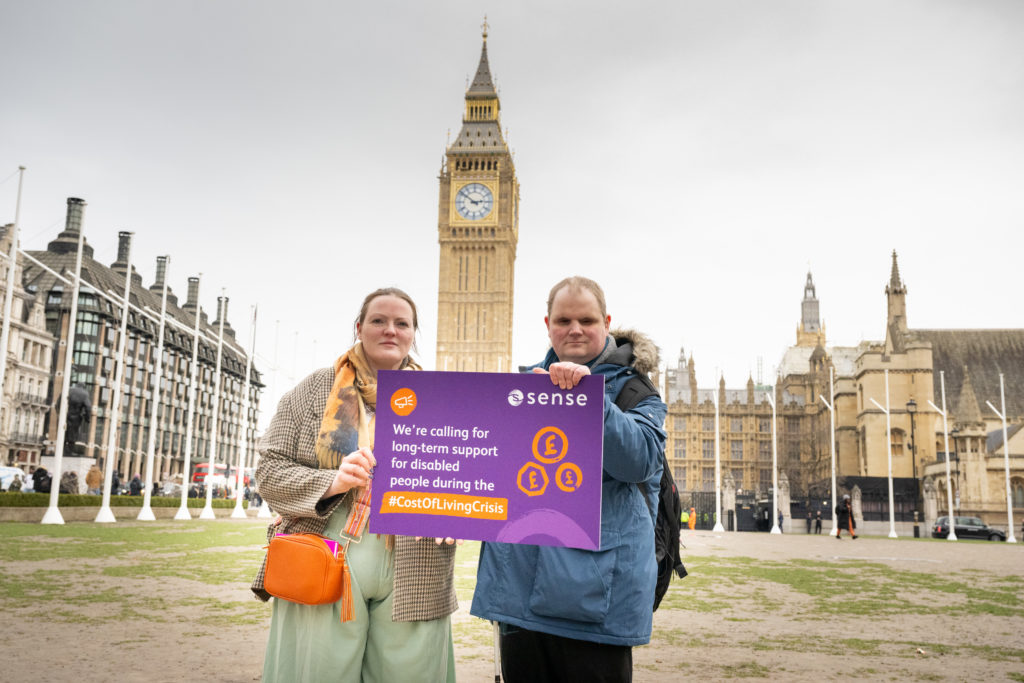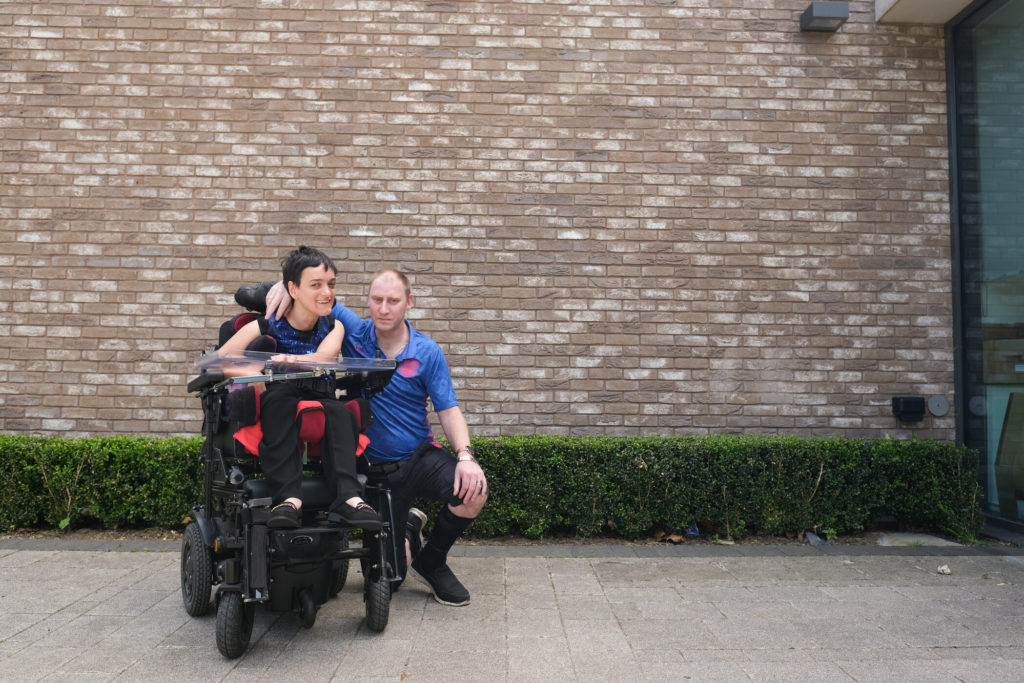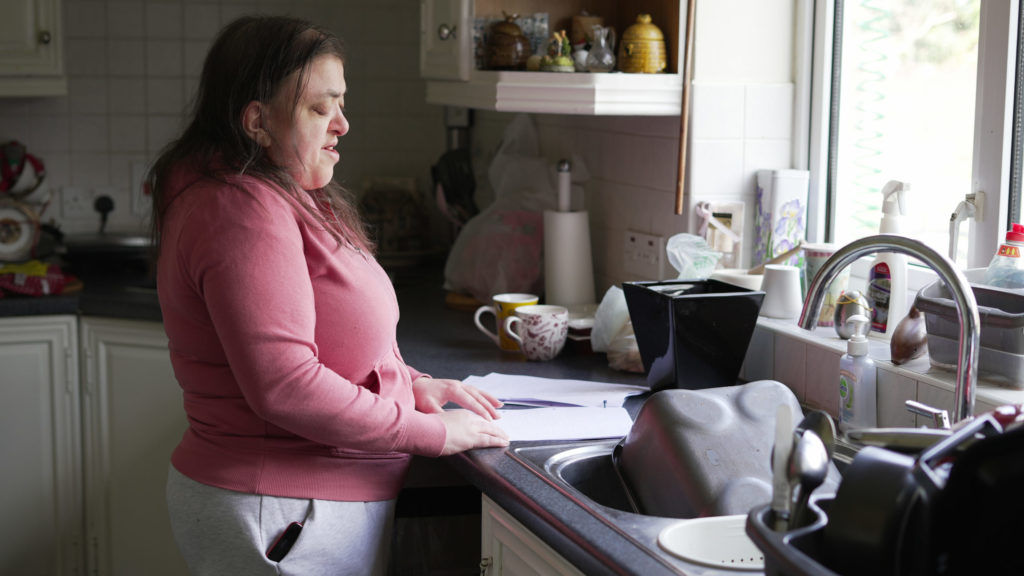The continuing impact of cost of living on people with complex disabilities
-
Our research in August 2023 has found that 70% of people with complex disabilities are worried about how they will cope financially over the winter months.
-
The same number of people with complex disabilities (70%) are also worried about keeping their home adequately warm.
-
68% of people with complex disabilities are worried about having to eat fewer meals to reduce food costs during the winter months.
Tackling high energy costs

Our 2022 Cost of Living Research and Potential and Possibility research has consistently found that people with complex disabilities are financially struggling.
Energy bills are the biggest concern in relation to essentials spending for people with complex disabilities (59%), followed by food (51%) and rent (32%).
Although the cost of energy has gone down, energy prices remain higher than in 2021 and unlike last winter there will be less government support with energy costs over the winter months.
Our research explored how helpful people with complex disabilities found the various support measures put in last year to help with high energy costs. The most hepful option was cost of living payments for those in receipt of certain benefits (62%); followed by £400 discount off energy bills through the Energy Bills Support scheme (61%).
One of the existing support options with energy bills this winter is the Warm Home Discount Scheme. The Warm Home Discount is a one-off discount of £150 off electricity bills over the winter months, available to those on low income who meet the eligibility criteria. Last year the eligibility criteria changed, meaning that up to 300,000 disabled people lost out on the annual discount to their energy bills.
29% of people with complex disabilities told us that although the £150 discount would help them with their energy bills, it wouldn’t be enough to help them with their energy costs.
Government should explore options to increase the level of support with energy bills to ensure people with complex disabilities are able to afford energy costs over the winter months.
Supporting people with complex disabilities in receipt of benefits

The current benefits system is not doing enough to help people with complex disabilities through the cost of living crisis.
Our research has found that a significant proportion of people with complex disabilities rely on some form of benefits to get by. 75% of people with complex disabilities are either in receipt of, or in the process of, applying for benefits. Over half of people with complex disabilities (55%) are currently in receipt of benefits and 19% are currently in the process of applying.
Over three quarters (76%) of people with complex disabilities in receipt of benefits are worried about how they financially cope over the winter months.
Similarly, 75% people with complex disabilities in receipt of benefits are worried about being able to keep their home adequately warm over the winter months.
They are also more likely to be on a prepayment meter for their energy (32% compared to 28%) putting them more at risk of energy debt if they are unable to keep their prepayment meter topped up.
It is essential that in order to support people with complex disabilities in receipt of benefits:
- Benefits should continue to be uprated in line with inflation to ensue people with complex disabilities are able to cope with the rising cost of living.
- There should be a review of how benefit rates are set and uprated to ensure we have a benefits system that works for disabled people.

Making a Social Tariff work
Our research found that the majority of people with complex disabilities (86%) felt a discounted energy scheme, also known as a social tariff, would help them with their energy costs.
37% feel a social tariff that has automatic enrolment for those in receipt of certain benefits and easy to access (36%) are important for a social tariff.
Over a third of people with complex disabilities (34%) felt that an overall cap or a fixed amount deducted from their energy bills would be important in making a social tariff work.
Government should explore options to implement a social tariff to provide a long term solution to the high energy costs faced by people with complex disabilities.
Methodology
Sense commissioned a UK wide poll of 1,002 people with complex disabilities by Censuswide between 24th to 31st August 2023.
Speak to our policy team
If you’d like more information about this research, please get in touch: [email protected]
